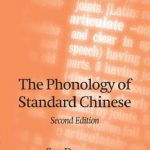Articles tagged with ‘Pronunciation’ Page 6
-
Improving Foreign Language Pronunciation: Interview with Hacking Chinese on Language is Culture
This is a 70-minute interview with me done by David Mansaray of Language is Culture. In the interview, we talk mainly about learning how to pronounce a foreign language as an adult. I share some of my own knowledge, thoughts and opinions and there’s probably something for everyone in this interview. Listen to it directly or download it to your phone for later listening!
Read → -
Two reasons why pronunciation matters more than you think
Good pronunciation matters, whether you like it or not. In general, students (and teachers) tend to stop caring about pronunciation much earlier than they should. You don’t need to aim for native-like pronunciation, but clear and easily-understood Chinese should be the goal of all students. In this article I present two arguments: one about the fact that pronunciation and communication are closely linked, one about how pronunciation reflects both you as a person and your other skills.
Read → -
About fossilisation and improving your Chinese pronunciation
It’s a fact that most foreign adults don’t acquire native like pronunciation in Chinese, but what’s the reason? In most debates at this point, someone will throw in the word “fossilisation”, as if that actually explained anything. This article is about why the concept of fossilisation is bunk and how we should think about adult pronunciation instead.
Read → -
Reading aloud in Chinese is really hard
Reading unfamiliar Chinese text aloud is very hard. This article sheds some light on why this is the case and what consequences it has for people who learn Chinese as a second language. In general, as a student, don’t feel down if you can’t read aloud well, because it really is very hard, and as a (native speaking) teacher, please understand that reading aloud in Chinese is much harder than you think.
Read → -
Using Audacity to learn Chinese (speaking and listening)
Audacity is a marvellous piece of software that allows you to record audio (yourself, other people or whatever is playing on your computer), mimic native speakers, edit and enhance the audio, as well as automatically manipulate multiple files, such as lecture or lesson recordings. In short, Audacity is a really good program for learning languages. This article introduces the software both through a video example and explaining text.
Read → -
You might be too lazy to learn Chinese, but you’re not too old
Children learn languages neither quickly nor effortlessly, but there’s still a lot we can learn from them. You might be too lazy, but you’re definitely not too old to learn Chinese.
Read → -
Review: The Phonology of Standard Chinese
Duanmu San’s “The Phonology of Standard Chinese” is by far the best introduction to Mandarin phonology that I’m aware of. It’s mostly useful for people who like phonology or are already at an advanced level and want to add a theoretical edge. This book contains tons of interesting material, all well-presented and well-argued.
Read → -
The tones in Mandarin are more important than you think
Tones are more important than most people think. Just because native speakers reduce tones and speak quickly, it doesn’t mean that you can do the same and get away with it. Don’t be fooled by people who say that tones in Chinese aren’t as important as all that, because they’re wrong.
Read → -
Chinese listening ability, a matter of practice?
Many people have asked me how to improve listening ability, not only when learning Chinese, but when learning any language. The problem is that there seems to be no tactic to employ and no smart tricks; to get better at listening, you simply need to practice. Is this really the case? Is listening ability simply about listening a lot? Can’t you hack it?
Read →







